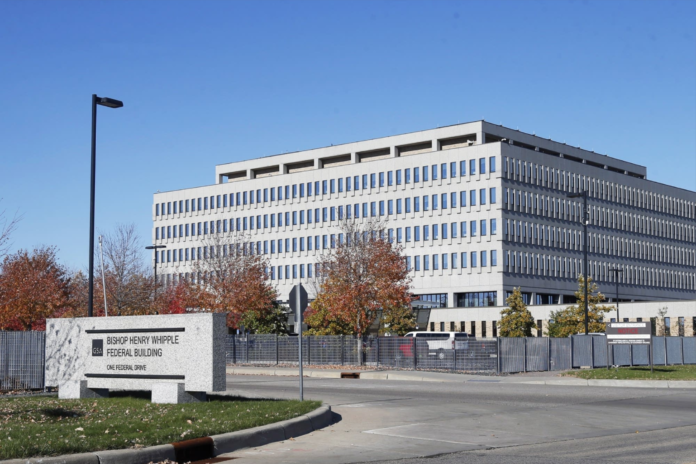Minnesota Public Radio (MPR) is reporting that the caseload at the immigration court for Minnesota, North Dakota, and South Dakota—located at the federal building in Bloomington, Minnesota—is skyrocketing.
Based on data from Syracuse University, the number of cases pending at the court has shot up 70 percent from last year, mirroring a trend in the rest of the country. Right now, there are 13,703 cases pending in the Bloomington court, where only six judges are presiding.
The increase in caseload is largely due to the Trump administration’s increased enforcement of immigration laws, without any increase in the number of judges hearing immigration cases.
Aside for a few isolated districts, particularly in San Diego, the judges appear to be doing their jobs too. While the number of cases judges got through was stagnant across the country or even declined in certain districts during the Obama administration, the immigration courts’ productivity has picked up markedly under the Trump administration.
In fact, this year the immigration courts got through the second highest number of cases in their history. That’s based on information from the Executive Office of Immigration Review, which is responsible for the immigration courts in the United States.
The Executive Office of Immigration Review is part of the Department of Justice (DOJ). That means these courts are not part of Article 3 of the Constitution—the judiciary branch—but are actually part of Article 2’s executive branch.
In other words, the president should have a say over how these courts are run, and should be able to get more funding from Congress to increase the number of judges. According to the MPR article, asking Congress for more money is exactly what the Executive Office of Immigration Review plans to do in 2020.
But one wonders why this didn’t happen sooner, especially given all former Attorney General Jeff Sessions’ talk about enforcing immigration laws. Sessions was Attorney General until late 2018, and was replaced by current Attorney General Bill Barr, who has been seen by many as more-effective at executing Trump administration policy than was Sessions.
Still, Sessions began to institute a policy in 2017 that would make the Executive Office of Immigration Review run more smoothly, and the DOJ under Bill Barr is driving these changes home. And part of the reason for the backlog is that Sessions, in 2017, ended the ability of immigration judges to drop cases without deciding them—a loophole that was allowing judges to not enforce existing immigration law.
The White House has also been working to make sure the judges in the appeals process quickly adjudicate cases according to existing law. But it is hard to see how the White House can tout a strong-on-immigration policy without adding significantly more immigration judges.


















